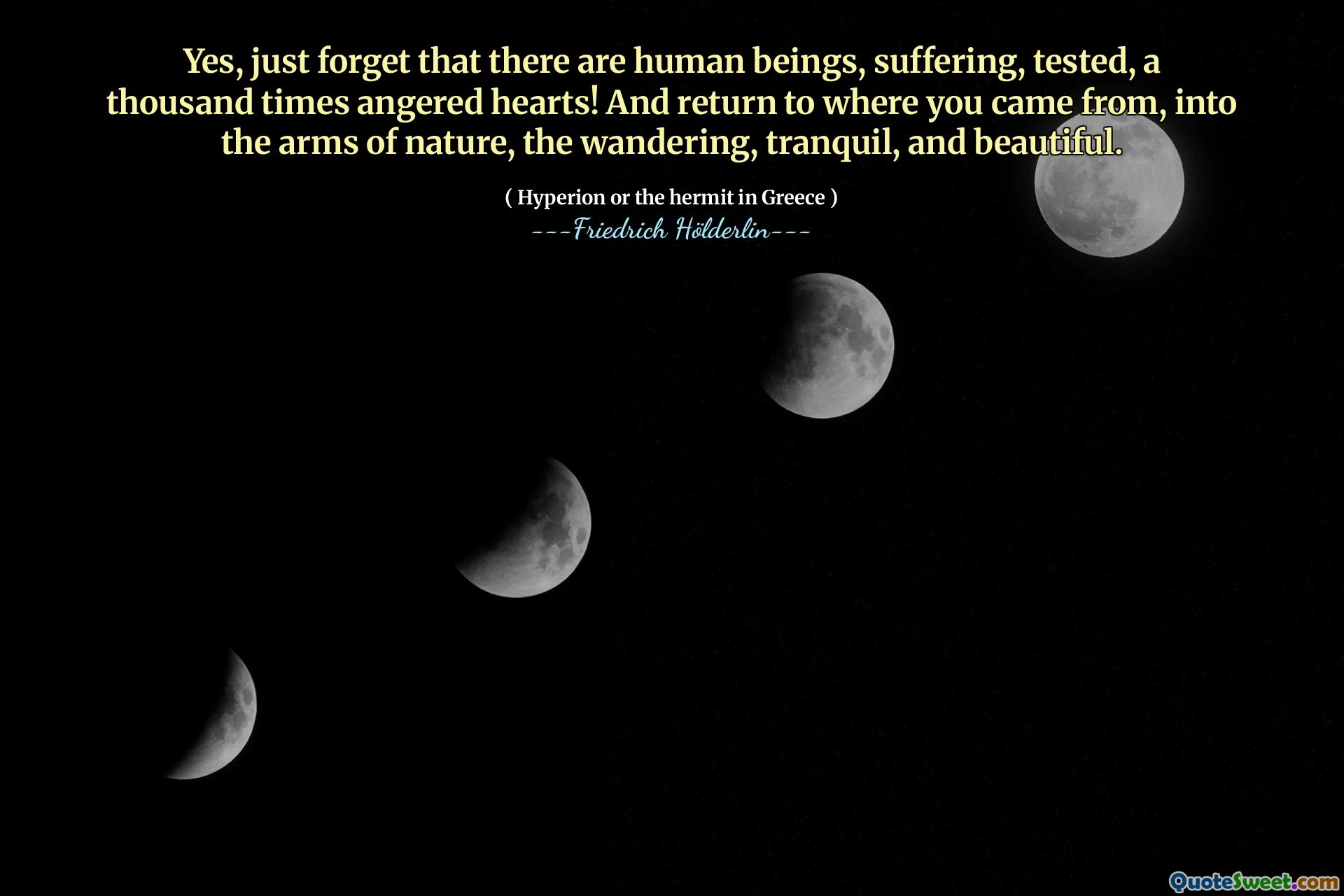
Yes, just forget that there are human beings, suffering, tested, a thousand times angered hearts! And return to where you came from, into the arms of nature, the wandering, tranquil, and beautiful.
This quote from Friedrich Hölderlin poignantly captures the profound connection between humanity and nature. It suggests that amidst the turmoil, suffering, and restless emotions that characterize human existence, there is a sanctuary in the natural world. The call to 'forget' the hardships of human life and to return to the arms of nature emphasizes the healing power of natural surroundings—peaceful, stable, and enduring. In our modern society, where technological advancement often distances us from the natural environment, Hölderlin invites a reconsideration of our relationship with nature as a refuge and a source of renewal. The phrase 'wandering, tranquil, and beautiful' evokes images of serene landscapes—mountains, forests, rivers—that remain constant despite human suffering. There's a suggestion that reconnecting with nature not only provides solace but also restores a sense of balance and perspective unattainable within the chaos of human affairs. His reflection underscores the importance of humility and acknowledgment of our fleeting, fragile selves in contrast to the eternal serenity of the natural world. This idea resonates deeply today, as many seek refuge from life's stresses in the outdoors, misunderstanding that purity and peace lie in a harmony with nature rather than in the superficial pursuits of modern life. Ultimately, Hölderlin reminds us that nature holds a timeless wisdom that can guide us back to ourselves, helping us find peace amid the restless pulse of human emotion and hardship.






